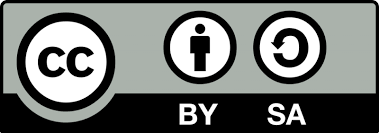Learning situations. Nature, significance and scope
DOI:
https://doi.org/10.23824/ase.v0i39.788Downloads
Abstract
In their preamble, the royal decrees establishing the organization and minimum teaching, promulgated in the second quarter of the 2021/2022 academic year, state that "in order to facilitate teachers' own practice, a definition of a learning situation is proposed and guidelines for its design are set out". That is, it emerges "an effective tool for integrating curricular elements" with the aim of contextualizing, experiencing and transferring learning, as well as generating motivation and commitment to it.
This article aims to analyze some pedagogical features and the study of certain normative provisions that give nature to learning situations. We will then try to assess whether the significance and scope of the regulation of the educational administrations estimate the main characteristics that the guidelines of the basic regulations outlined above enunciate, and guide teachers to plan their teaching activities in accordance with them.
References
Ananiadou, K., & Claro, M. (2009). 21st century skills and competences for new millennium learners in OECD countries.
Blández, J. (2005). La utilización del material y del espacio en Educación Física. Propuestas y recursos didácticos. Barcelona: INDE.
Brousseau, G. (2007). Iniciación al estudio de la teoría de las situaciones didácticas. Buenos Aires: Libros del Zorzal.
Delors, J., Amagi, I., Carneiro, R., Chung, F., Geremek, B., Gorham, W., y Nanzhao, Z. (1997). La educación encierra un tesoro: informe para la UNESCO de la Comisión Internacional sobre la Educación para el Siglo Veintiuno. Unesco.
Feo Mora, R. J. (2018). Diseño de situaciones de aprendizaje centradas en el aprendizaje estratégico. Tendencias Pedagógicas, 31, 187–206. https://doi.org/10.15366/tp2018.31.011
Faure, E. et all (1972). Aprender a ser: La educación del futuro. Madrid: Alianza Universidad–UNESCO.
Hameyer, U. (1979). School Curriculum in the context of Lifelong Learning. UNESCO.
Herrera Clavero, F. y Ramírez Salguero, M.A. (1992). Situación de Aprendizaje-Enseñanza. Bordón: Revista de pedagogía, Vol. 44, Nº 2, 1992, p.177-190.
Kolb, D.A (2014). Aprendizaje experiencial: La experiencia como fuente de aprendizaje y desarrollo. Prensa FT.
Marope, M., Griffin, P. y Gallagher, C. (2017). Competencias futuras y el futuro del currículo. Obtenido del sitio web de la Oficina Internacional de Educación: http://www.ibe.unescoorg/es/noticias/documento–futuras–competencias–y–futuro–curriculum
Marsh, D. (1994). Bilingual education & content and language integrated learning. International Association for Cross-cultural Communication (Eds.), Language Teaching in the Member States of the European Union (Lingua). Paris: University of Sorbonne.
Mendia, R. (1989). Como definir una situación de aprendizaje. En Eskola, (22), 3236-3248.
Montero Alcaide, A. (2022a). Por qué es más difícil evaluar que enseñar competencias. En Magisnet, 23 de marzo de 2022.
Montero Alcaide, A. (2022b). ¿Situaciones de aprendizaje o unidades didácticas? La parte o el todo. En Magisnet, 21 de septiembre de 2022.
Montero Alcaide, A. (2023). Orientaciones para el cambio educativo: ¿Situaciones de aprendizaje o aprendizaje situado?. Diario El País, 31 de enero.
Moya, J. y Valle, J. (Coor.) (2020). La reforma del currículo escolar: ideas y propuestas. Madrid: ANELE.
Moya, J. y Luego, F. (2020). Un currículo escolar basado en situaciones de aprendizaje. En Moya, J. (Coor), Educar para el siglo XXI. Reformas y mejoras. LOMLOE; De la norma al aula. Madrid: Grupo Anaya.
Moya, J. y Luego, F. (Coor.) (2013). Guía para la formación en centros sobre las competencias básicas. Ministerio de Educación, Cultura y Deporte.
Organisation for Economic Cooperation and Development (OECD) (2018). The future of education and skills: Education 2030.OECD Education Working Papers.
Pelllicer (2020). Un currículo escolar basado en Proyectos. En Moya, J. (Coor), Educar para el siglo XXI. Reformas y mejoras. LOMLOE; De la norma al aula. Madrid: Grupo Anaya.
Pérez Aguilar, J.F (2022). La enseñanza básica. Más allá de la obligatoriedad y la gratuidad. Avances en Supervisión Educativa, (38).
Martín, H. R. (2020). ¿Cómo aprendemos?: una aproximación científica al aprendizaje y la enseñanza (Vol. 1). Graó.
Valle, J. (2020). El currículo escolar desde una perspectiva supranacional. En Moya, J. (Coord), Educar para el siglo XXI. Reformas y mejoras. LOMLOE; De la norma al aula. Madrid: Grupo Anaya.
Valle, J. M., y Manso, J. (2013). Competencias clave como tendencia de la política educativa supranacional de la Unión Europea. Revista Española de Pedagogía (Extraordinario), 12–33.
Vergara, J. J. (2015). Aprendo porque quiero: El Aprendizaje Basado en Proyectos (ABP), paso a paso: El Aprendizaje Basado en Proyectos (ABP), paso a paso(Vol. 10). Ediciones SM España.
Vergara, J. J. (2018). Narrar el aprendizaje: La fuerza del relato en el Aprendizaje Basado en Proyectos (ABP). SM Ediciones..
Vigotski, L.S. (2000). El desarrollo de los procesos psicológicos superiores. México: Grijalbo.
Werstch, J.V. (1991). Un enfoque sociocultural de la acción mental. En: M. Carretero (Comp.) Desarrollo y aprendizaje (pp. 29 - 48). Buenos Aires: Aique
How to Cite
Issue
Section
Published
Keywords:
learning situations, context, experience, transfer, programmingLicense
Copyright (c) 2023 José Francisco Pérez Aguilar

This work is licensed under a Creative Commons Attribution-ShareAlike 4.0 International License.

Attribution Share-Alike CC BY-SA
Those authors who have publications with this magazine, accept the following terms:
A) The authors will retain their copyrights, which will be simultaneously subject to the Creative Commons Attribution License that allows others to re-mix, modify and develop on your work even for commercial purposes, provided they credit you And to license their new works under the same terms.
B) The authors will retain the rights of exploitation of the intellectual property of this work, and especially the rights of reproduction, distribution, transformation in any of its modalities and public communication of said work, which will be simultaneously subject to the License Of recognition of Creative Commons that allows others to re-mix, modify and develop on your work even for commercial purposes, provided they credit you and license your new works under the same terms.
Creative Commons Attribution-ShareAlike 4.0 International Public License

